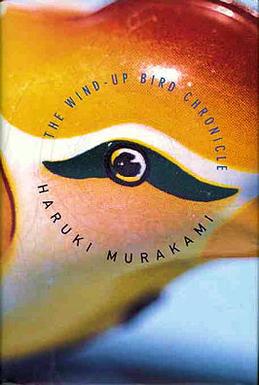
Explore the captivating world of Haruki Murakami, a Japanese novelist whose unique voice has captivated readers worldwide. Discover how his surreal stories, profound themes, and distinctive style have made him one of the most influential writers of our time.
In the realm of contemporary literature, few authors have managed to carve out a space as distinctive as Haruki Murakami. With his blend of magical realism, introspective storytelling, and philosophical musings, Murakami has become a literary icon whose works resonate across cultures and generations.
From the quiet streets of Tokyo to the literary salons of the West, Murakami’s stories evoke a sense of wonder, mystery, and deep human emotion. His ability to seamlessly weave the surreal with the mundane has earned him a dedicated global following and critical acclaim.
Early Life and Influences
Born Haruki Murakami in 1949 in Kyoto, Japan, he grew up immersed in jazz music, Western literature, and American pop culture. His early exposure to diverse artistic influences shaped his eclectic writing style, which often features themes of loneliness, identity, and the subconscious.
Murakami’s background as a translator and his love for Western authors like Franz Kafka, Raymond Carver, and F. Scott Fitzgerald further influenced his literary voice. After working in a jazz bar, he decided to pursue a career in writing, eventually publishing his first novel in the late 1970s.
Breaking Boundaries: Murakami’s Unique Literary Style
Murakami’s writing stands out for its surrealist approach—worlds where cats talk, spirits linger, and reality intertwines with dreams. His narratives often explore the subconscious mind, loneliness, and the search for meaning in a disconnected world.
His prose is characterized by simple yet profound language, accessible to a broad audience but layered with complex symbolism. This blend of the fantastical and the everyday has earned him comparisons to authors like Kafka and Borges, but Murakami’s voice remains unmistakably his own.
Notable Works and Themes
Some of his most celebrated novels include:
- “Norwegian Wood” – A poignant coming-of-age story exploring love, loss, and mental health.
- “Kafka on the Shore” – A surreal tale intertwining two narratives involving a runaway teenager and a mysterious elderly man.
- “1Q84” – An epic trilogy blending alternate realities, love, and political intrigue.
- “The Wind-Up Bird Chronicle” – A complex exploration of memory, history, and the unconscious.

Across these works, recurring themes emerge:
- Loneliness and Isolation: Characters often grapple with feelings of alienation.
- Search for Identity: Many protagonists embark on journeys of self-discovery.
- Supernatural and Mysticism: Elements that challenge perceptions of reality.
- Music and Pop Culture: Jazz, classical music, and literature frequently serve as thematic motifs.
Global Influence and Recognition
Haruki Murakami’s novels have been translated into over 50 languages, earning him international fame. He’s received numerous awards, including the Franz Kafka Prize and the Jerusalem Prize, and has been shortlisted for the Nobel Prize in Literature multiple times.
His influence extends beyond books—Murakami’s work has inspired musicians, filmmakers, and artists worldwide. His distinctive storytelling style has helped elevate contemporary Japanese literature to a global stage, making him an ambassador of cross-cultural storytelling.
Murakami’s Impact on Modern Literature
What makes Murakami’s work so compelling is his ability to tap into universal human experiences while exploring the surreal depths of the subconscious. His stories challenge readers to question reality, confront their inner fears, and seek meaning beyond the superficial.
In a world increasingly dominated by technology and disconnection, Murakami’s themes of loneliness, longing, and self-discovery resonate deeply, offering solace and reflection.
Why Readers and Critics Continue to Be Fascinated
- Universal Themes: Love, loss, identity, and the search for meaning.
- Unique Style: Blending magical realism with everyday life.
- Cultural Bridge: Merging Japanese traditions with Western literary influences.
- Enduring Legacy: Continually inspiring new generations of writers and readers.
Haruki Murakami has redefined what modern literature can be—an enchanting blend of the surreal and the real, the profound and the accessible. His stories invite us into worlds where the boundaries of reality dissolve and the depths of human emotion come to the fore.
As he continues to write and inspire, Murakami’s legacy endures as a testament to the power of storytelling—reminding us that within the strange and mysterious, we can find truths about ourselves.
Inspired by Murakami’s stories? Follow us for more insights into the lives of authors who have changed the literary landscape!
Image source: Wikipedia
ChatGPT and Its Top Alternatives in 2025: AI Tools Shaping the Future
Clémentine Delait: The Bearded Lady Who Defied Society’s Expectations and Became a Circus Legend
Discover the incredible story of Clémentine Delait, a 19th-century French performer who broke bounda…
Lilya Brik: The Enigmatic Muse Who Shaped the Russian Avant-Garde
Discover the fascinating story of Lilya Brik, a lesser-known but profoundly influential figure in ea…
Goldie Hawn: The Hollywood Icon with Hidden Hungarian-Austrian Roots
“You often have to look back to understand how you’ve moved forward. My roots are a part of who I am…









